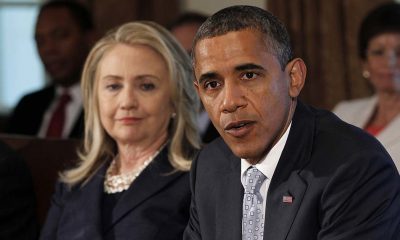World
Arranged marriage film ‘arranges’ shows for Indian Americans

Washington: Just like arranged marriages in India, a new film on the subject uses a new more “democratic” way of distributing films to match niche South Asian audiences with select theatres in America.
Theatrical-on-Demand (ToD) puts the power in the hands of the audience, says Rohena Gera, director of “What’s Love Got To Do With It?” described as an unscripted micro budget film that explores arranged marriages in Indian society.
“So a film that may not have the marketing muscle or money to release across the country but has a niche audience that would love to see it on screen can access this audience,” Gera told.
Anybody anywhere in the US can request a film at a theatre near them, and even choose the date and preferred time and the distributor will assign a cinema for the show at no cost, Gera said explaining the concept
The only obligation the person has is to try to get people to commit to purchasing tickets in advance so that the show can be confirmed, she said
“If you get the requisite number you reach the tipping point, the screening is confirmed, and people are billed.” Gera said.
“If you don’t, the show gets automatically cancelled and nobody is billed for anything.”
She chose to go the TOD way because her film has only come this far because of audience support, said the Pune based filmmaker who did an independent release in her home city “after a fantastic premiere at the Mumbai film festival.”
Gera said she “saw that this film connects with audiences. So TOD seemed to be a good way to go as it is low cost and audience-centric.”
“Plus the good thing with TOD is that you are not restricted to cinemas that show South Asian or Bollywood films… you can screen anywhere.”
The film currently has 8 live requests for screenings in New York, New Jersey, Connecticut, Texas, Washington DC and California.
She is even getting inquiries from distributors who want to release through the traditional distribution channels too.
But Gera is not aiming at just the South Asians. “My target is anybody who has ever wondered what makes a marriage work… or anybody who has ever wished they could find Mr/Ms. Right ASAP!”
“Although right now we are reaching out primarily through South Asian channels, I do believe the wider American public would connect with the film as it asks real questions about love, loneliness, and compromise and explores the choices we all face.”
Working as she is with no marketing budget at all, Gera is also relying on social media to reach the wider public. But she does not think social media works as well for arranged marriages.
The concept of arranged marriage “involves quickly ‘getting to know’ someone, and to that end, Facebook and Twitter are perhaps useful as we all have these personas on social media through which we express our likes, dislikes and so on,” she said.
“So in terms of quickly browsing through another’s life I am sure it is useful,” Gera said.
“However I personally feel that sometimes these are carefully constructed identities, and what works between two people is much less tangible.”
Most people she interviewed, “even for arranged marriages, spoke about clicking or chemistry or some version of it.”
In Gera’s view the way arranged marriage works for Indians and NRIs is “quite similar.”
“My film is about urban well-travelled, well-educated Indians, so in many ways they have the same struggles as NRI’s or the diaspora. They have extensive exposure to the west and many have even studied in the US.”
“So they are in many ways grappling with two cultures just like Indian Americans or British Asians: that of their parents, and that of the west or popular media,” she said.
“They want love, equality and so on, but their parents advice isn’t always consistent with that.”
After exploring arranged marriage, Gera plans to “an impossible love story”, a fiction feature set in Mumbai.
“It is, and is neither Bollywood nor Hollywood… It would be an indie film, so to speak” like “The Lunchbox” or “Monsoon Wedding.”
World
Lockdowns in China Force Urban Communities to Defy Censorship and Vent Frustration Online

Shanghai’s rich middle class is leading a wave of online dissent over the strict and prolonged lockdowns imposed in various parts of the country. Chinese internet censorship is struggling as patience is wearing thin in many urban centers, coming up with creative forms of online protests.
Social Media Posts Revealing Lockdown Tension in Shanghai
Drawn-out lockdowns are nothing new in China as authorities insist with the nation’s zero-Covid policy since the start of the pandemic. Currently over This time around, however, metropolitan areas like Shanghai are increasingly difficult to keep quiet, given that its more than 25 million residents have seen weeks of total isolation along with food shortages and many other service interruptions.
Dozens of towns and reportedly over 300 million Chinese citizens have been affected by lockdowns of different severity. As expected, urban netizens have been most outspoken over their difficulties by finding creative ways to get around state censorship and bans placed on topics, news comments and spontaneous campaigns.
Shanghai residents have been using mobile proxies and hijacking seemingly unrelated hashtags to talk about healthcare issues, delivery failures and the overall severity of their situation. The “positive energy” that the Chinese government wants to transmit during the recent prolonged series of lockdowns does not come naturally to those counting food supplies and online censors are working hard to filter words, trending topics and undesired social media sharing.
WeChat groups and message threads are under constant monitoring. Posts questioning the zero-Covid approach have been quickly deleted, including by leading Chinese health experts like Dr. Zhong Nanshan. Video footage is soon censored and protests and investigations are quickly made to disappear.
Where this has not worked, officials have exposed banners with warnings and outright threats like “watch your own mouth or face punishment”, while drones have been patrolling the city skies. Yet, if anything, this has led to further tensions and unspoken confrontation with Shanghai’s educated and affluent middle class.
Creative Online Solutions Harnessing Civic Energy
Announcements by Chinese social media that they would be publishing the IP addresses of users who “spread rumors” have not helped either. Tech industry research has shown that much of Asia’s tech-savvy population has a habit of using mobile proxies and other privacy tools, quickly finding workarounds to browse the internet freely and talk to the world about the hottest topics.
The sheer volume of forbidden posts is already a challenge for the very censorship system, experts explain. Unable to track all trending hashtags, state workers overlook topics that speak about the US, Ukraine or other popular news. Linking human rights elsewhere to their situation, Chinese online dissidents establish their informal channels and “hijack” the conversation to share personal or publicly relevant information about the Covid suppression in their town.
Sarcastic and satirical posts still dominate. Others hope to evade the censors by replacing words from famous poems or the national anthem. One thing is certain – social media, when harnessed with the right creativity, has proven its ability to mount pressure on the government in even some of the most strictly controlled tech environments like China.























